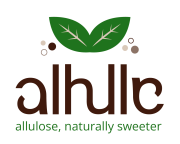The Sweet Revolution
In recent years, the demand for healthier sugar alternatives has surged, primarily due to the growing awareness of the negative health impacts associated with excessive sugar consumption. Among various options, allulose, also known as D-psicose, stands out as a compelling choice, offering unique benefits that set it apart from traditional and artificial sweeteners. This article explores the various advantages of allulose, making it an excellent alternative for health-conscious individuals and those with specific dietary needs.
Understanding Allulose
What Is Allulose?
Allulose is a naturally occurring monosaccharide found in small quantities in fruits like figs, jackfruit, and raisins. Chemically, it mirrors fructose but differs structurally, rendering it unprocessable by the body. As a result, it delivers about 0.2 to 0.4 calories per gram, significantly lower than traditional sugar, which contains 4 calories per gram. Allulose’s low caloric content combined with its sweetness—approximately 70% that of table sugar—makes it an appealing option in the realm of health sweeteners.
Key Benefits of Allulose
1. Minimal Impact on Blood Sugar Levels
One of the most significant advantages of allulose is its zero glycemic index, meaning it does not raise blood sugar or insulin levels. For individuals managing diabetes or those following ketogenic diets, this characteristic allows for the enjoyment of sweet flavors without the detrimental metabolic effects associated with conventional sugars. Studies have shown that allulose intake can help regulate blood sugar responses even post-consumption of other carbohydrates.
2. Supports Weight Management
Allulose can aid in weight loss efforts due to its low-calorie content. Research indicates that regular inclusion of allulose in the diet can lead to a decrease in body fat and overall weight. A controlled study involving Korean adults revealed that participants who consumed allulose significantly reduced their visceral fat and body weight over 12 weeks. By replacing higher-calorie sweeteners with allulose, individuals can enjoy a sweet taste without excessive caloric intake.
3. Preventive Health Benefits
Emerging studies suggest that allulose possesses anti-inflammatory properties, which may reduce the risk of chronic diseases. Its potential to lower oxidative stress in the body complements its role as a sweetener, making it not just a sugar substitute but a contributor to overall well-being.
4. Dental Health Friendly
Unlike traditional sugars that promote tooth decay, allulose does not encourage the growth of harmful oral bacteria. This quality makes it advantageous for maintaining dental health, particularly in adults and children who might be prone to cavities.
5. Functional Versatility
Allulose behaves similarly to sugar in culinary applications, making it exceptionally versatile. It can be used in baking, cooking, and beverages without the bitter aftertaste associated with many artificial sweeteners. Unlike sugar alcohols like erythritol, which can cause gastrointestinal discomfort, allulose’s metabolic profile supports more comfortable consumption for sensitive individuals.
6. Prebiotic Potential
Allulose may also serve as a prebiotic, promoting beneficial gut bacteria, which can enhance digestion and gut health. Although not all consumed allulose is fermented moderate amounts may contribute positively to microbial health in the intestines.
How Allulose Compares to Other Sweeteners
In comparison to other popular sweeteners, allulose presents several advantages:
- Allulose vs. Sucralose & Aspartame: Unlike these artificial sweeteners, allulose does not have a bitter aftertaste and mimics sugar in texture and flavor, providing a more satisfying sweetening experience without health risks commonly associated with synthetic additives.
- Allulose vs. Stevia: While stevia is often lauded for its natural origins, its distinct flavor profile may not appeal to all consumers. Allulose provides a sugar-like taste without the unique aftertaste some may find off-putting with stevia.
- Allulose vs. Monk Fruit: Monk fruit sweeteners have antioxidant properties, but allulose has been more extensively researched for blood sugar management and fat metabolism. Furthermore, allulose can be utilized in similar baking applications as regular sugar, offering more versatility in culinary settings.
Conclusion
Allulose (D-psicose) emerges as a remarkable contender in the pursuit of healthier sweetening options. Its unique qualities—including a negligible impact on blood sugar levels, effective weight management support, potent preventive health benefits, and versatility in culinary applications—make it a preferred alternative to many traditional and artificial sweeteners. As consumers become increasingly health-conscious, incorporating allulose into diets may not just satisfy sweet cravings, but also enhance overall health.
Navigating the sweetener landscape can be challenging, but with allulose, individuals can enjoy appetizing sweetness while adhering to healthy lifestyle goals. As ongoing research sheds light on its many benefits, allulose is set to gain further recognition as a staple in health-oriented dietary practices.

